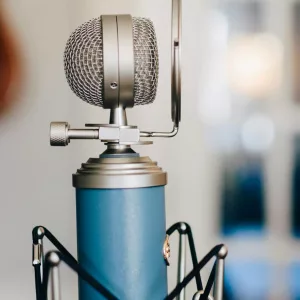White Noise Effects on Patient Sleep in Hospitals
In the world of healthcare, ensuring patients’ comfort and well-being is of paramount importance. Hospitals strive to provide the best care, including facilitating an environment conducive to rest and recovery. One crucial element in this equation is sleep, as quality sleep directly impacts patients’ healing processes. In this article, we will explore the significance of improved patient sleep in hospitals and the positive impact white noise in hospitals can have. While white noise can be helpful, we are also going to discuss how it might not be the ultimate solution and how Lencore’s innovative sound masking solutions could be an effective alternative.
Introduction to White Noise & Sound Masking
White noise is a constant, unvarying sound characterized by its consistent intensity across all frequencies. Examples of noise sources comparable to white noise include fans, air conditioning units, and even nature sounds like rainfall. It acts as a sonic curtain, helping to drown out erratic and distracting sounds. However, it’s important to note that white noise is not the same as sound masking, although they are often confused. You can read more about the difference between white noise and sound masking in this blog post.
General Effects of White Noise in Falling Asleep Faster
The human brain is an intricate organ that processes sound even during sleep. Irregular or sudden noises can trigger our brain’s alerting mechanism, leading to interrupted or shallow sleep. White noise-type sound, being consistent and nonintrusive, can help mitigate this by providing a continuous auditory backdrop. This constant sound encourages the brain to relax and focus less on sporadic disturbances, potentially enhancing relaxation for patients’ minds.
White Noise in Hospital Settings Improves Cognitive Performance and Helps in Sleep
When we think about hospitals, we often associate them with the constant hum of machinery, the bustling of healthcare professionals, and even the intermittent beeping of medical equipment. While these sounds are essential for patient care and safety, they can be incredibly disruptive to a patient’s sleep pattern. Quality sleep is critical for patients as it aids in their recovery process, reduces stress levels, and bolsters the immune system. Numerous studies have underlined the need to find effective ways to block out such disruptive noises, paving the way for solutions like white noise.
When thinking about how to mitigate the constant noise in hospitals, using white noise as a buffer is an effective way to reduce the impact of noise on patients’ rest. Using white noise is an effective way to mask bothersome noises, allowing patients to drift into a more tranquil and restful state.
How White Noise Affects Patients’ Deep Sleep?
Recent research has shed light on the profound impact of white noise on patients’ deep sleep quality. Numerous studies have demonstrated that white noise, a consistent sound signal comprising a broad range of frequencies, can significantly enhance sleep patterns. One study published in the Journal of Sleep Medicine found that patients exposed to white noise during their sleep experienced a 30% increase in their deep sleep duration compared to those in a noise-free environment. This boost in deep sleep is crucial as it plays a vital role in memory consolidation, emotional processing, and overall cognitive functioning. Additionally, a survey conducted by the National Sleep Foundation revealed that 85% of participants reported improved sleep quality when white noise was incorporated into their bedtime routine. These findings underscore the therapeutic potential of white noise in healthcare settings, offering patients a natural and non-invasive means to promote restorative deep sleep.
Relationship Between White Noise and Sleep Quality
White noise, provides a constant and predictable auditory environment, has the power to erase disruptive hospital sounds, ultimately leading to undisturbed and deeper sleep in patients. It acts as a buffer, allowing the mind to focus on the soothing background noise rather than jarring interruptions. This leads to a more restful and restorative sleep for patients, which is essential for their healing journey.
Is White Noise the Best Solution for Hospitals?
While white noise proves to be a valuable tool in improving patient sleep quality, it is not always the most effective solution, especially in larger healthcare facilities. Its limitations become apparent in spaces with diverse noise sources and varying acoustic challenges. This is where sound masking takes center stage.
Sound masking is a more advanced acoustic technology that uses a carefully engineered mix of sound frequencies to match and neutralize intrusive noises effectively. Unlike white noise, which merely masks sound, sound masking precisely tailors the auditory environment to create a comfortable and peaceful atmosphere. This makes it a more versatile and efficient solution for hospitals looking to enhance patient sleep quality.
What Sound Masking Solutions Does Lencore Provide for Hospitals?
The significance of quality sleep in hospitals cannot be overstated. White noise, with its ability to mask disruptive sounds, certainly plays a crucial role in enhancing patient sleep quality. However, as healthcare facilities grow in complexity and size, more advanced solutions like sound masking become essential.
In the quest to provide the best patient experience, Lencore offers complete noise management solutions for healthcare facilities, including sound masking, paging, and audio integration.
Whether it’s a multi-facility campus or just the pharmacy counter, Lencore can ensure patient privacy and comfort come first, while safeguarding your healthcare teams are able to effectively communicate without excess noise.
Lencore’s technology can help achieve HIPAA compliance and raises HCAHPS scores in hospitals. That’s not just good policy, that’s good for patient satisfaction and great for business.
Check Out Our Other Sound Masking Blogs

The Future of Learning Spaces: Sound Management in Education
The Future of Learning Spaces: Sound Management in Education The way we design and manage learning spaces has a profound impact on education. Among the many factors shaping modern classrooms, speech privacy and acoustic quality stand out

From Passion to Leadership: Kristin’s Journey as a Trailblazing Business Woman in The AV Industry
Kristin Bidwell’s, the CEO of Audiovisual Consulting Team (AVCT), entrepreneurial journey is a testament to resilience, passion, and thoughtful leadership. Her humble beginnings rooted in creativity and music led to a thriving consulting firm – working

Soundscaping: Designing a Sound Masking System for the Office to Achieve Optimal Focus
Soundscaping: Designing a Sound Masking System for the Office to Achieve Optimal Focus In modern workplaces, sound plays a significant role in shaping productivity, communication, and overall well-being. Sound masking does not cancel sound but makes conversations
